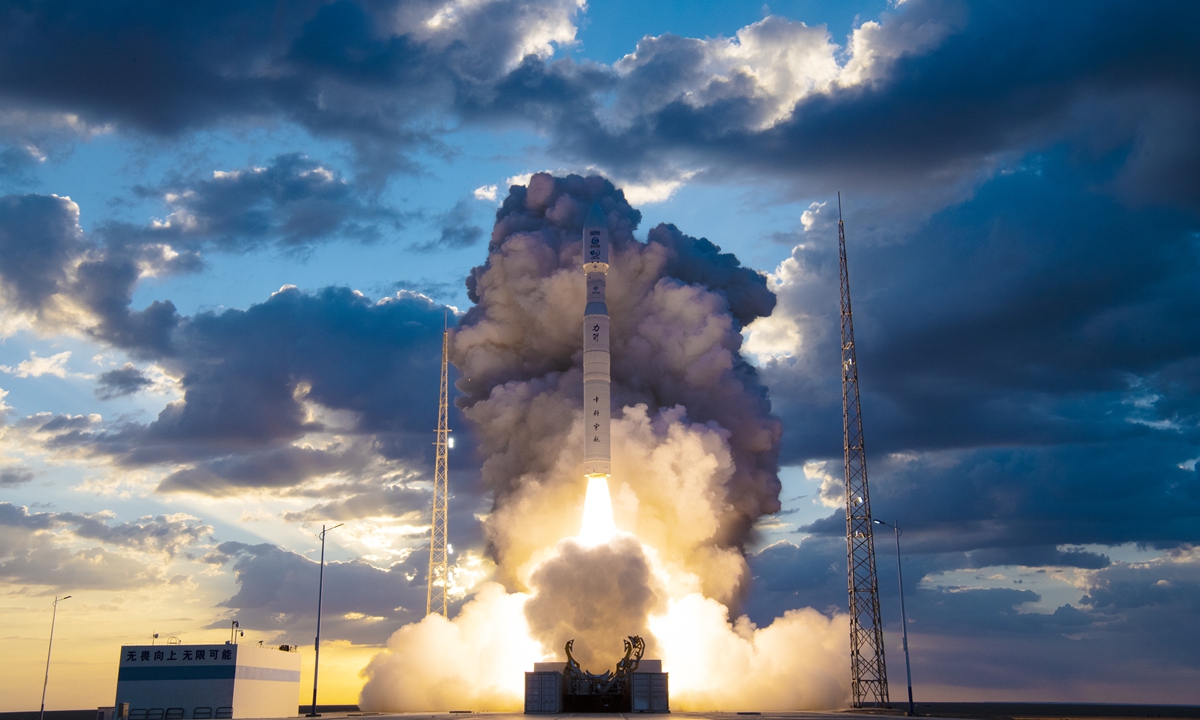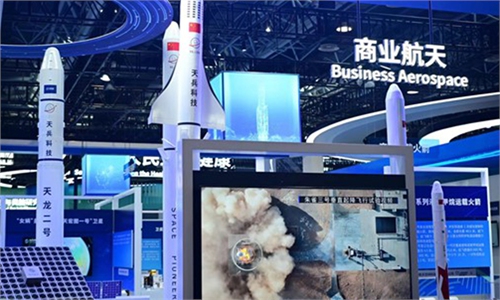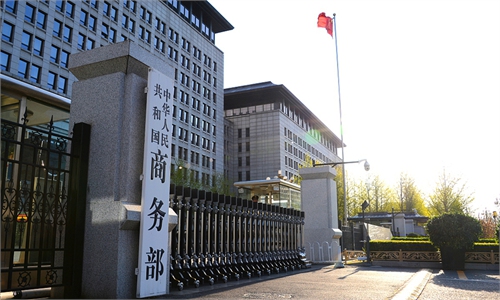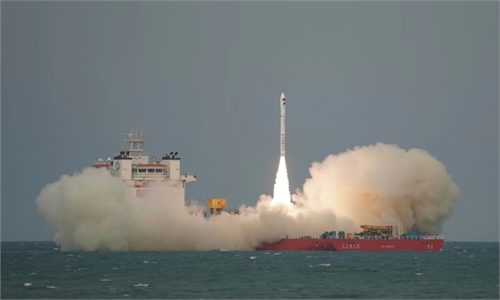Guangdong plans to foster space manufacturing, tourism to boost commercial space industry

The Lijian-1 Y4 commercial carrier rocket carrying five satellites blasts off from the Jiuquan Satellite Launch Center in northwest China, Sept. 25, 2024. The rocket blasted off at 7:33 a.m. (Beijing Time) from the Jiuquan Satellite Launch Center in northwest China and sent a group of satellites, including the Jilin-1 SAR01A satellite and Yunyao-1 21-22 satellites, into their planned orbits. Photo: cnsphoto
South China's Guangdong Province plans to foster emerging space industries including manufacturing, tourism and biomedicine using a forward-thinking approach so as to boost the rapid development of the space economy, according to an action plan the local government issued on Monday on the high-quality development of the commercial space industry.The province aims to boost the combination of space breeding technologies and the cultivation of Chinese herbal medicines, rice and flowers to support the selection and promotion of excellent varieties and develop new forms of modern agriculture.
The province will conduct exploration in cutting-edge fields including space materials and space energy by synergizing its efforts with national key aerospace projects, it said.
Guangdong aims to boost the scale of the commercial space and relevant industries to 300 billion yuan ($42.4 billion) by 2026, master core technologies and nurture a batch of high-tech firms in the commercial space industry.
The commercial space industry, which is key in nurturing new quality productive forces and serving as a new growth engine, is being given a spotlight, having been written into this year's Government Work Report for the first time.
China's commercial space industry has witnessed rapid development in recent years, growing from 800 billion yuan in 2019 to 1.9 trillion yuan in 2023, with a compound annual growth rate of 23.3 percent. The market is expected to reach 2.3 trillion yuan by the end of 2024, according to an industry report.
According to industry insiders, the sector has vast development potential on the back of policy support, as the industry has a long and extensive supply chain.
Other provincial-level regions, including the capital city of Beijing, Shanghai and Central China's Hubei Province, are also pushing for the growth of their commercial space sectors, introducing development policies and establishing industrial parks and bases.
For example, Beijing aims to introduce and nurture more than 500 high-tech firms in the commercial space industry, more than 100 specialized and sophisticated enterprises, and more than 10 unicorns - start-ups that are valued at more than $1 billion.
Global Times



